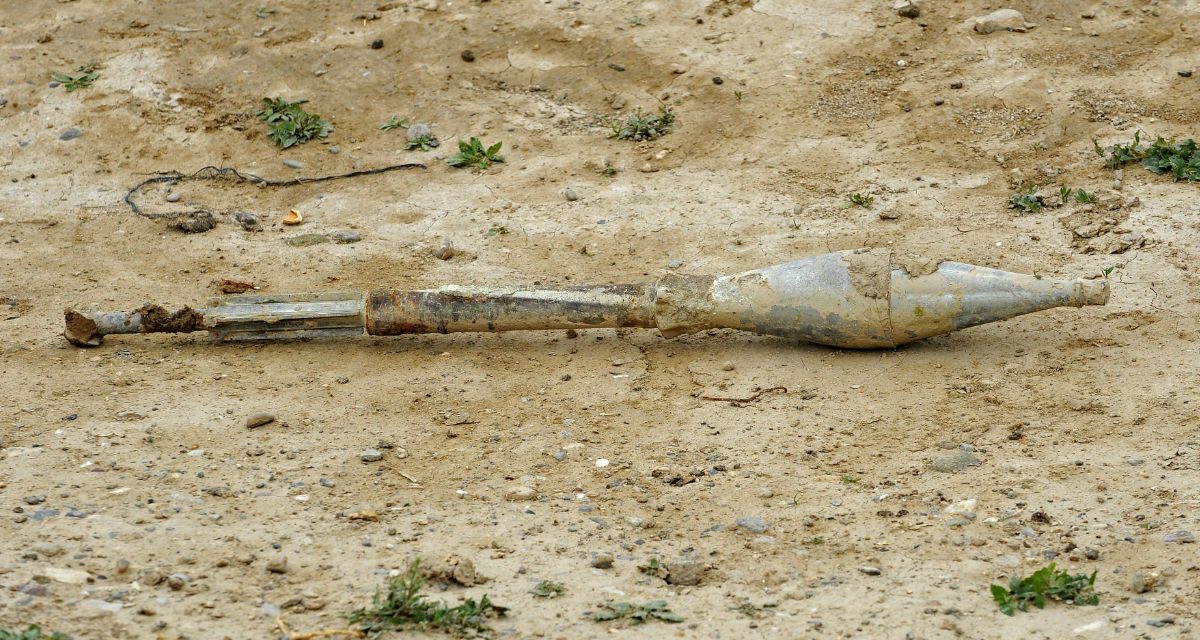Carmen Gentile, Blindsided by the Taliban: A Journalist’s Story of War, Trauma, Love, and Loss (Skyhorse Publishing, 2018)
After nearly two decades of war, most of us can point to that defining moment, when clarity shone through the fog of war for a brief instant, forever frozen in time. Some of us look back on those moments with a shrug and a shake of the head, thankful to have walked away unscathed. For others, life’s journey ends in that moment. And for others still, that moment marks the beginning of a new journey on a road less traveled, where the scars of war often run so deep below the surface they go unnoticed.
For Carmen Gentile, that moment came on September 9, 2010. A freelance journalist embedded with a company of the 101st Airborne Division in Kunar Province, Afghanistan, Gentile brought with him a wealth of experience, having covered the wars in Afghanistan and Iraq during previous assignments. That experience also conveyed an uncommon sense for the environment; a sense which screamed that “something doesn’t feel right” as the patrol he escorted made its way into the small village of Gewi; a sense that gnaws at the edge of his consciousness:
Just down the road a dozen or so yards there is a man standing alone. He’s facing us and carrying something on his shoulder. . . . A moment’s confusion, followed by dread-induced clarity. He’s shouldering a rocket launcher that’s pointed right at us.
A moment frozen in time. When time begins again, a rocket-propelled grenade has robbed Gentile of his right eye, but failed to detonate, leaving him wounded, but alive. Confused, but alive. Disoriented, but alive. Very alive.
Why the round did not explode remains one of those mysteries of war, a question left to the gods of chance. His war was over, and as the shock began to fade, reality set in: his equipment is destroyed, and uninsured; reporting is his livelihood, a livelihood now threatened; his life, his career are probably over. How would he survive? How would he earn a living? Would anyone even care? With an uncertain future ahead, Carmen Gentile began his journey on that road less traveled.
What follows is as much inspiring as it is heart-wrenching. While the visible scars of that September day heal with time, the invisible scars do not. The clarity of that moment returns again and again, each time with the same brutal ferocity.
WHAM! It clocks me again, blood pours between my fingers. I clench the sheets each time it hits. My palms are sweaty. My knuckles are white with tension. WHAM! The rocket connects with my face again and again and again.
In a pattern familiar to many, surgery after surgery follow, as doctors piece together what remains in the aftermath of the “dud” grenade’s impact. Failed attempts to save his traumatized eye, repairs to a shattered orbital socket, and reconstructive surgery to his face itself. The physical damage heals with time. The true value of Blindsided by the Taliban, however, comes with the healing of his soul, his journey back from post-traumatic stress. The honesty that Gentile brings forth is both stark and unforgiving. He holds nothing back from the reader.
A gifted storyteller, Carmen Gentile still struggled to share his own. For years, Blindsided by the Taliban existed as scribbled notes on scraps of paper, cash register receipts, and post-it notes scattered around his office. It was that elusive story that exists on the fringes of your day, where the ideas form in fleeting moments but you never quite find the time to weave them together. In the winter of 2014—in truly Hemingway fashion—Gentile broke away from everyone and everything in his life and moved into a dilapidated cabin in rural western Pennsylvania with a furnace so faulty that a coat of ice coated the basement floor. There, as he stared into his own existential abyss, the words finally came together.
Blindsided by the Taliban is that rare gem in literature, a first-person account of war and its aftermath that is at times both deeply touching and wrenchingly hilarious. The influence of Vonnegut and O’Rourke is evident from the first pages, and Gentile’s writing is just as brilliant and powerful. The book quickly settles into a familiar rhythm and follows that formula even as the writing jumps across datelines, reaching back in time to add context, then leaping forward again without missing a beat. The end result is captivating, pervasive, and thoroughly enjoyable reading.
Today, Carmen Gentile can be found back where his adventure began: on the front lines of conflict around the world, brandishing the ubiquitous eyepatch that has come to represent not just the events of that September day, but his own remarkable and cathartic recovery from the hidden scars of war.
Image credit: Staff Sgt. Brian Ferguson



Unbelievable that the RPG did not explode. The picture of the rocket just laying the street is moving. Thank god he didn't die. Thanks for the article. It is great work.
The picture of the RPG on the ground is of one that has not been fired. The fins are not deployed and it looks as if the nose cap protecting the fuse has not been removed. Not to take away from the powerful image, but just a note for the readers.
I suppose we all have had a moment frozen in time in these type of situations.
Mine was driving a jeep in Da Nang (three days after I arrived in-country), another soldier next to me, when shots rang out. We couldn't tell where the rounds were coming from, though we saw a few were skipping off the pavement, so we knew the VC were behind us – somewhere. A few choice expressions as to their questionable parentage, I slid down in the seat, upshifted and hit the accelerator – Mario Andretti had nothing on me!
Maybe we remember the first time best, perhaps because we had always wondered what we'd do if and when it first happened?
Excellent point about the fins not being deployed. Maybe it was abandoned. Anyway, moving picture for sure. If something like that were found in the Mojave desert it would be on national news for a month. Dave.
Thanks Dave. Looks great. Great point. I guess its a wait and sea! haha. get it?